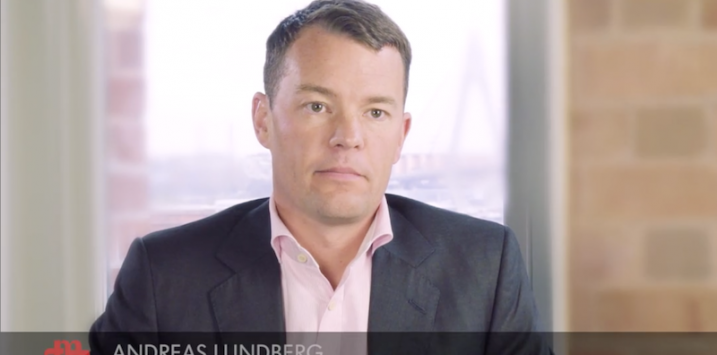
The people behind the process
This month, I talk to our newest addition to the Montgomery team, Andreas Lundberg, Senior Analyst for The Montgomery Fund who recently joined us from Sweden.
Profile: Andreas Lundberg
What initially drew you into funds management and in particular equity analysis at Fidelity International?
Although I have an engineering background, I have always been interested in the stock market and money. It was in London that I attended a recruitment fair which is where I met Fidelity. This was just after the Tech Wreck of 2001, when there weren’t many jobs in the finance industry so to get a job at one of the most respected fund managers in the world was a bit of a coup. I believed my structured and methodical thinking processes would be useful in equity analysis and it seemed Fidelity did too.
What makes a successful investor?
It’s a combination of a few things. Firstly, you need to be able to assimilate a lot of information and work out what is important and what is not. This then needs to be put into perspective from the individual company’s situation and then considered in the broader context of the sector that the company operates, the broader market and global market. You also need very good fundamental analysis skills, so you can take this relevant information and distil it down into a realistic valuation for a company. If there is a large margin of safety, then it could represent a potential portfolio investment.
What is the biggest mistake that most investors make?
I think on average the biggest mistake investors make is their over confidence in being able to forecast the future prospects of a business. They spend too much time on just one outcome when in reality there are many possible outcomes and one should assign probabilities to each of these outcomes to be able to judge the risk weighted attractiveness of an investment.
Given your last career focus was in an M&A advisory firm, can you tell me what that involved and how that helps you as an equity analyst here at Montgomery?
Firstly, it involved understanding a set of companies intimately, building relationships with company management then coming up with ideas that were value adding for that company and getting them to execute on those ideas. Compared to an being an equity analyst you still need to build relationships with company management, understand the companies deeply and what their strategy is, but you don’t have to help them implement that strategy. Instead, I can stand to the side and assess whether it is the right or wrong thing to do and subsequently calculate the likely value accretion or destruction and decided to invest or not. I think having been involved in the formulation and implementation of strategy gives me a big advantage over other analysts in the market who do not have this hands-on experience.
What worries you most about investing in the current environment?
Valuations! I think domestically and globally easy money has been pumped into the financial system through quantitative easing and low interest rates. This has resulted in a flood of money seeking out yield wherever it can find a home. As a result, it has pushed up valuations across the board in all assets.
If you weren’t an equity analyst, what would you most likely be doing?
I’d probably be back in M&A Advisory or an in-house strategy executive like in my previous roles. Although in saying that I would like to be a professional sailor, but not sure what the family would say!
Having recently arrived from Sweden, what are your thoughts on property prices in Australia compared to Sweden?
Interestingly, compared to Sweden the prices are about the same. In saying that, I agree with the article in the AFR recently where the prices of property were described as “Dangerously Dumb” by Deloitte Access Economic. Stockholm is up there in the top three most overvalued cities in the world, being Vancouver, Sydney and Stockholm. The difference here is affordability. Standard variable mortgages in Australia are about 3.9 per cent whereas in Sweden you can borrow at 0.85 per cent.
If an Australian was travelling to Sweden, what’s one thing that they should experience?
Summer #1! (don’t go any other time of year) And then go to the West Coast archipelago, from Gothenburg to the Norwegian boarder. It covers 300kms and is extremely pretty be it on a boat, kayak or hiking. Ranked 7 on CNN Travels 10 last greatest wilderness places – you can read more here.